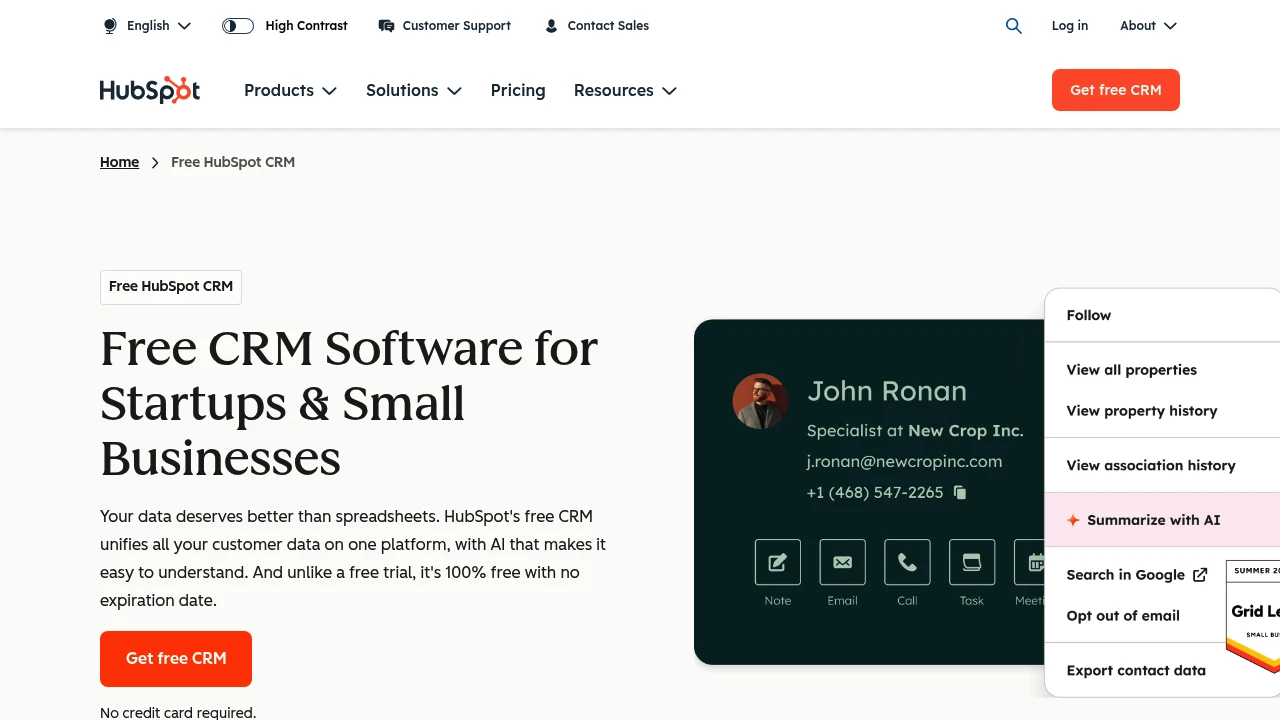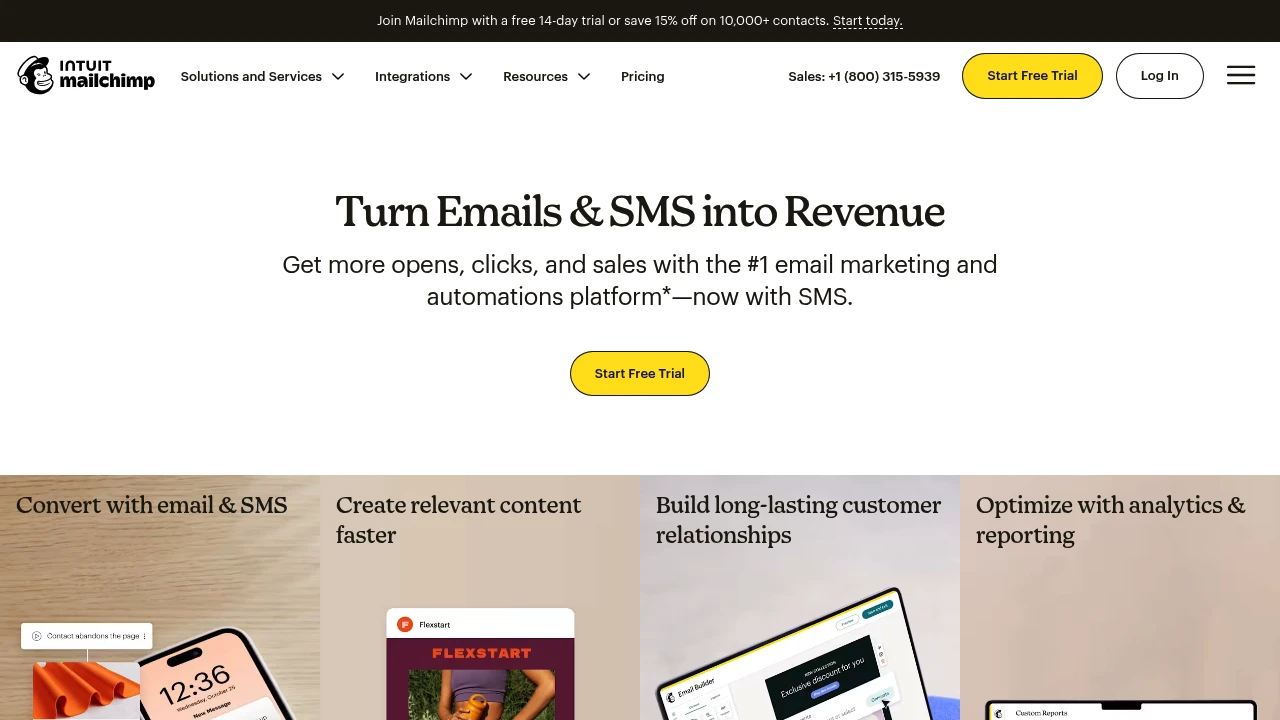Do Musicians Need CRM? Your Complete Guide to Music Business Success
Discover if CRM for musicians is worth it. Learn how customer relationship management can boost your music career, fan engagement, and revenue streams.
Written by Kevin Christensen
•8 min read
On this page
You've probably heard successful musicians talk about treating their music like a business. But what does that actually mean? While you're focused on perfecting your sound and booking gigs, there's a whole world of fan relationships, business contacts, and revenue opportunities that could slip through the cracks.
That's where Customer Relationship Management (CRM) systems come in. These powerful tools aren't just for Fortune 500 companies anymore. Musicians at every level are discovering how CRM for musicians can transform their careers, helping them build stronger fan relationships, streamline their business operations, and ultimately increase their income. Whether you're a solo artist playing local venues or managing a touring band, understanding CRM could be the game-changer your music career needs.
In this guide, we'll explore whether you really need a CRM system, what features matter most for musicians, and how to choose the right platform for your unique needs. Check out our comprehensive CRM category page for the latest tools and reviews.
What is CRM and How Does it Work?
Customer Relationship Management (CRM) is a system that helps you organize, track, and nurture all your professional relationships. Think of it as a supercharged contact book that remembers every interaction you've had with fans, venues, promoters, and industry contacts.
For musicians, a CRM system stores much more than just names and phone numbers. It tracks when you last contacted a venue, what your fan engagement rates look like, which songs perform best at different types of events, and even monitors your income streams from various sources.
The magic happens through automation and data organization. Instead of keeping scattered notes in your phone or losing business cards in your guitar case, everything lives in one central location. Your CRM can automatically send follow-up emails to new fans, remind you to check in with booking agents, or alert you when it's time to reach out to past venues for repeat bookings.
Most modern CRM systems work in the cloud, meaning you can access your data from anywhere – perfect for musicians who travel frequently. They integrate with your email, social media accounts, and often connect with music-specific platforms like Spotify for Artists or Bandcamp.
Why Musicians Should Consider CRM Systems
The music industry runs on relationships, and maintaining those relationships manually becomes impossible as your career grows. Here's why CRM for musicians makes sense:
Fan Engagement at Scale: Remember when you could personally respond to every message and know each fan by name? As your audience grows, that becomes impossible. A CRM system helps you segment your fanbase and send personalized messages that feel authentic. You can track which fans attend multiple shows, purchase merchandise, or share your content most frequently.
Professional Relationship Management: Your network includes venue owners, booking agents, sound engineers, other musicians, music journalists, and industry professionals. Each relationship has its own history, preferences, and potential opportunities. A CRM system ensures you never forget to follow up on a lead or miss an important contact's birthday.
Revenue Optimization: CRM systems excel at tracking multiple income streams. You can monitor which venues pay best, which merchandise sells at different locations, and identify your most profitable activities. This data helps you make smarter decisions about where to focus your energy and resources.
Time Management: How much time do you spend searching for contact information, trying to remember when you last spoke to someone, or manually sending the same update to multiple people? CRM automation handles these repetitive tasks, freeing you to focus on creating music and performing.
Professional Credibility: When you can quickly access detailed information about past interactions, you project professionalism that sets you apart. Remembering that a venue prefers acoustic sets or that a fan mentioned loving your ballads creates meaningful connections that lead to repeat business and referrals.
Key CRM Features That Benefit Musicians
Not all CRM features are relevant to musicians, but several core functionalities can significantly impact your career:
Contact Management with Music-Specific Fields: Beyond basic contact information, look for systems that let you add custom fields relevant to musicians. You'll want to track things like venue capacity, typical performance fees, music genres preferred, and equipment requirements. For fans, you might track favorite songs, merchandise purchases, or social media engagement levels.
Email Marketing Integration: Your CRM should seamlessly connect with email marketing tools. This allows you to send targeted newsletters to different audience segments – perhaps a different message for industry contacts versus fans, or separate updates for different geographic regions where you perform.
Event and Show Tracking: Calendar integration is crucial for musicians. Your CRM should track not just upcoming shows, but also past performance data. Which venues brought the largest crowds? Where did you sell the most merchandise? This historical data informs future booking decisions.
Social Media Monitoring: Advanced CRM systems can track social media mentions and engagement across platforms. You'll see which posts generate the most interest, identify your most active fans, and spot opportunities for collaboration with other artists or venues.
Mobile Accessibility: As a musician, you're often on the go. Your CRM must work flawlessly on mobile devices, allowing you to add new contacts at shows, update information between sets, or send quick follow-ups while traveling.
Integration Capabilities: The best CRM for musicians integrates with the tools you already use. This might include Spotify for Artists, social media scheduling tools, accounting software, or music distribution platforms.
Analytics and Reporting: Data-driven decisions lead to better outcomes. Your CRM should provide insights into fan growth, engagement trends, and revenue patterns. These reports help you understand what's working and where to adjust your strategy.
Popular CRM Options for Musicians
The CRM landscape offers options ranging from free basic platforms to comprehensive enterprise solutions. Here's what works well for musicians:
Pipedrive excels at managing business relationships and sales processes. For musicians who view bookings as a sales process, Pipedrive offers intuitive pipeline management that helps track opportunities from initial contact to confirmed gigs.
Airtable combines spreadsheet functionality with CRM capabilities. It's highly customizable, allowing musicians to create exactly the system they need. The visual interface makes it easy to track multiple projects and relationships simultaneously.
For budget-conscious musicians, start with free options like HubSpot or Google Sheets with CRM templates. As your career grows and your needs become more complex, you can upgrade to more sophisticated platforms.
Pricing typically ranges from free for basic features to $50-100 per month for professional-level functionality. Consider this an investment in your music business – the time saved and opportunities gained often pay for the software costs quickly.
Getting Started with Your First Music CRM
Implementation doesn't have to be overwhelming. Start small and build your system gradually:
Begin with Your Existing Contacts: Don't try to build a perfect system from scratch. Import your current contacts from your phone, email, and social media. Clean up duplicates and start categorizing people by relationship type (fans, venues, industry contacts, collaborators).
Define Your Contact Categories: Create clear categories that match your needs. Common categories include venues (with subcategories by size or location), fans (perhaps by geographic region or engagement level), industry professionals, and other musicians. Consistent categorization makes your CRM much more useful.
Set Up Basic Automation: Start with simple automated tasks like welcome emails for new fan contacts or follow-up reminders after meetings with industry professionals. As you become comfortable with these basic automations, you can add more sophisticated workflows.
Establish Regular Review Habits: Schedule weekly or monthly time to review and update your CRM data. Add notes from recent conversations, update contact information, and plan your next outreach activities. Consistency is more important than perfection.
Track Key Metrics from Day One: Decide what success looks like for your music career and start tracking those metrics immediately. This might include number of new fans per month, booking inquiry conversion rates, or revenue per performance. Having baseline data makes it easier to measure improvement.
Start with One Area: Rather than trying to manage everything at once, focus on one aspect first. If booking gigs is your priority, start by organizing venue contacts and tracking booking conversations. Once that's working smoothly, expand to fan management or other areas.
Common Mistakes Musicians Make with CRM
Avoid these pitfalls that can derail your CRM success:
Over-Complicating the System: The most sophisticated CRM in the world is useless if you don't actually use it. Start simple and add complexity gradually. A basic system that you use consistently beats a complex system that overwhelms you.
Inconsistent Data Entry: Your CRM is only as good as the information you put into it. Develop habits around adding new contacts immediately and updating existing records after interactions. Inconsistent data leads to missed opportunities and embarrassing mistakes.
Ignoring Mobile Functionality: If your CRM doesn't work well on your phone, you won't use it when you need it most – at shows, meetings, and networking events. Test mobile functionality before committing to any platform.
Focusing Only on Quantity: More contacts doesn't automatically mean more success. Focus on building meaningful relationships with engaged fans and industry professionals rather than just collecting as many names as possible.
Neglecting Data Backup: Your CRM contains irreplaceable relationship data. Ensure your chosen platform includes automatic backups, and consider exporting your data periodically as an additional safeguard.
Setting and Forgetting: CRM systems require ongoing attention to remain useful. Schedule regular reviews to clean up outdated information, adjust your categorization system, and optimize your workflows based on what you've learned.
A successful CRM strategy for musicians balances automation with personal touch, leverages data without losing authenticity, and grows organically with your career rather than trying to solve every problem at once.
Conclusion
CRM for musicians isn't just about organizing contacts – it's about building a sustainable foundation for your music career. In an industry where relationships drive opportunities, having a system that helps you nurture those connections consistently can make the difference between struggling and thriving.
The musicians who succeed long-term treat their craft as both an art and a business. While you'll never replace genuine creativity and talent with software, you can amplify your natural abilities by working smarter. A good CRM system helps you stay connected with fans who want to support your music, maintain professional relationships that lead to better opportunities, and make data-driven decisions about where to invest your time and energy.
Start where you are, with the tools you can afford. Whether that's a free HubSpot account or a simple spreadsheet, the important thing is beginning to treat your relationships systematically. As your career grows, your CRM system can grow with you, becoming more sophisticated as your needs evolve.
Remember, the goal isn't to automate away the human element that makes music special. Instead, use CRM to handle the business logistics efficiently, so you have more time and energy for what matters most – creating great music and connecting authentically with the people who love it. Your future self will thank you for building these systems now, before you need them desperately.
The question isn't whether you need CRM as a musician – it's whether you can afford not to use one in today's competitive music landscape.

